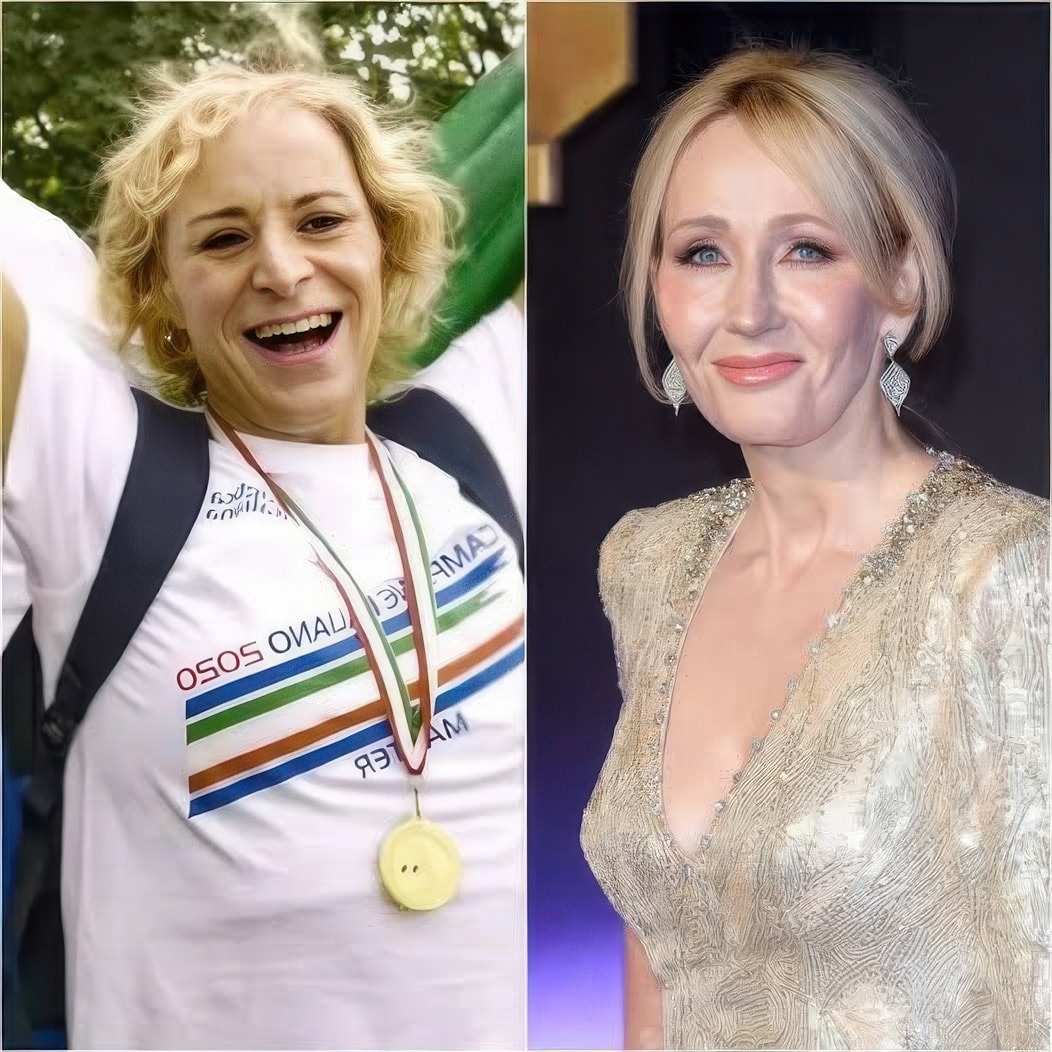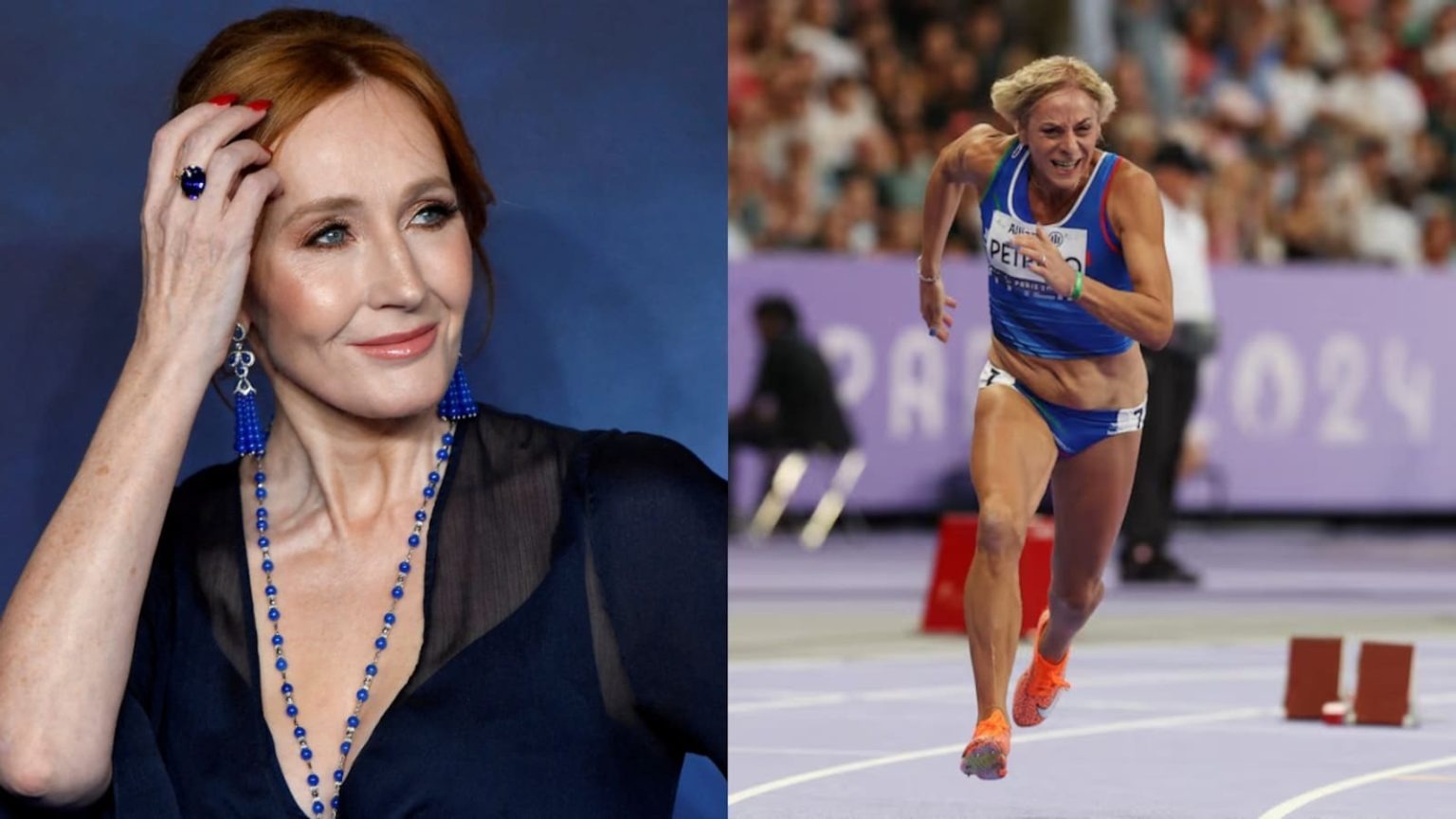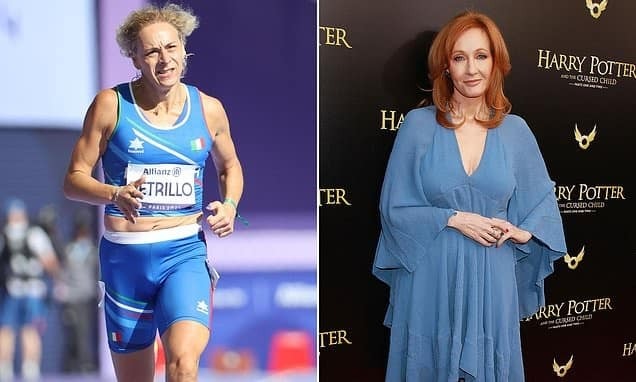J.K. Rowling Sparks Backlash After Calling Trans Athletes “Cheaters” in Women’s Sports

British author J.K. Rowling is once again at the center of controversy after publicly criticizing two transgender athletes on social media, calling them “cheaters” in women’s sports. The comments, shared with her millions of followers on X (formerly Twitter), have triggered a global wave of backlash — while also earning support from some who back her stance on sex-based competition.
Rowling’s remarks targeted Valentina Petrillo, a transgender Italian Paralympic sprinter who is visually impaired, and Algerian boxer Imane Khelif, who was ruled ineligible to compete in the women’s final at the 2023 World Championships due to “medical reasons,” reportedly linked to elevated testosterone levels.
“Women’s sport is not a free-for-all for males who identify differently. This is not inclusion. It is cheating,” Rowling wrote in her post.
Swift Backlash and Fierce Debate
The reaction was immediate and intense. LGBTQ+ advocacy groups condemned the author’s remarks as “harmful and dangerous,” accusing her of spreading misinformation and fostering hostility toward transgender athletes.
Critics also pointed out that both Petrillo and Khelif had followed the eligibility guidelines set by their respective sports’ governing bodies — suggesting that the real debate lies in policy, not personal attacks.
Petrillo responded in an Italian media interview with grace and calm:
“I run because I love sport, and I follow the rules. I do not want to take anything from anyone. I want to compete fairly — and I do.”
Khelif, who previously expressed heartbreak over her 2023 disqualification, has not directly responded to Rowling’s recent remarks.
Support for Rowling’s Position
Despite the backlash, Rowling’s comments also found support — particularly from feminist groups and commentators who argue that transgender inclusion in women’s sports can undermine fairness and safety. Supporters claim she is defending the rights of biological women and challenging institutions they believe are bending to political pressure.
“This isn’t about identity. It’s about fairness and protecting female athletes,” one advocacy group posted in solidarity with Rowling.
A Familiar Controversy
Rowling has become a prominent and polarizing voice on issues of sex and gender since 2020, consistently arguing that biological sex should not be ignored in policymaking — particularly when it comes to women’s rights, healthcare, and sports.
While her comments have cost her support among some fans of the Harry Potter franchise, others see her as a truth-teller unafraid to speak out on controversial issues.

Sports, Science, and Policy at a Crossroads
The ongoing debate over transgender inclusion in sports shows no signs of slowing down. International athletic organizations are under growing pressure to either reinforce or revise eligibility rules, with critics on both sides demanding clarity, fairness, and compassion.
Rowling’s latest remarks have once again ignited that debate, sharpening the focus on how sports organizations — and society at large — should navigate the complex intersection of identity, biology, and equity.
As high-stakes competitions like the Olympics approach, the question remains: Can sports strike a balance between inclusion and fairness — or are we headed for deeper division?
